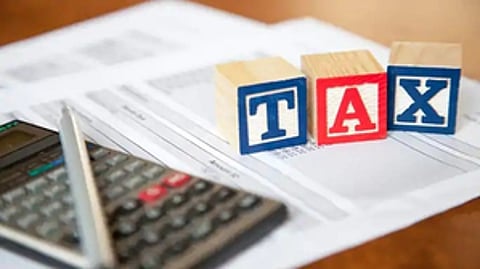
Executive Summary
In January 2026, Nigeria is set to enact a sweeping change to its taxation of capital gains — particularly in the equity markets — under the newly consolidated Nigeria Tax Act (NTA) 2025 and related reforms. While the reform is billed as a progressive, fairer system aligning with global best practices, our investigation reveals both substantial opportunities and serious risks — especially for the equity market, foreign investors and the broader goal of economic growth in Nigeria.
Key findings:
- The flat 10% capital gains tax (CGT) that formerly applied is being abolished; for individuals, capital gains will be taxed at their marginal income‑tax rate (0‑25%); for companies, the rate rises to 30%. (PwC Tax Summaries)
- For foreign investors disposing of Nigerian equities the effective CGT rate may reach as high as 30%, raising concerns about capital flight and diminished confidence in the market. (allAfrica.com)
- The reform includes protective measures such as reinvestment relief and thresholds (~₦150 million in sales or ₦10 million in gains) that could exempt most individual investors. (Nairametrics)
- Despite rhetoric about revenue‑enhancement, CGT has historically been a small fraction of government receipts; the real objective of the reform appears to be harmonisation and fairness rather than immediate revenue growth. (Punch)
- Timing and communication gaps, plus risk of retroactive cost‑base adjustments in an inflation‑ and devaluation‑prone economy, pose important risks to investor behaviour and market liquidity.
This story delves deeper into context, analysis, stakeholder voices and what to watch going forward.
Background: Why the Reform?
The old CGT regime
Under the former system, gains from asset disposals (shares, real estate, etc.) were taxed at a flat 10%. This system was simple but had critics who said it allowed income‑reclassification and created distortionary incentives. (TheCable)
The low rate also meant CGT collections were quite modest — the tax base was limited.
The broader tax reform agenda
The CGT changes are part of a broader overhaul of Nigeria’s tax framework under President Bola Tinubu’s economic agenda:
- Aiming to raise the tax‑to‑GDP ratio which at ~10% is low by comparator standards. (Reuters)
- Simplifying and consolidating multiple tax statutes (Companies Income Tax Act, Personal Income Tax Act, Capital Gains Tax Act) into a single regime. (Punch)
- Promoting fairness: low earners will be exempt or taxed less, higher earners taxed more; reducing tax arbitrage between capital and income. (Mercans Global Payroll & PEO)
In short, the government frames the reform as building a more equitable and efficient tax system — not just raising rates.
What the Reform Actually Says: The Key Changes
Here are the relevant changes to CGT and related rules under the new regime:
| Change | Detail |
|---|---|
| CGT for individuals | Capital gains will now be included as part of taxable income under the NTA; so instead of a flat 10% they’ll be taxed at the individual’s marginal rate between 0 % and 25 %. (Mondaq) |
| CGT for companies | Gains for companies will face a rate of up to 30% (aligned with CIT) — rate increased from the previous 10%. (Baker Tilly Nigeria) |
| Foreign equity investors | For foreign investors in Nigerian equities, a new effective rate of up to 30% is cited; however, reinvestment relief exists (if proceeds are reinvested into Nigerian securities) to reduce the rate or defer the tax. (Dabafinance) |
| Thresholds & reliefs | Some thresholds are set to protect smaller players: e.g., one source says disposals up to ₦150 m or gains up to ₦10 m may be exempt. (Nairametrics) |
| Cost base/fiscal clarity concerns | Critics warn that gains on assets held for many years may be taxed without inflation adjustment or resetting cost base — risky in Nigeria’s context of currency deprecation and inflation. (Nairametrics) |
Stakeholder Perspectives: Supporters vs. Critics
Government / Reformers’ view
- The reform committee argues the changes make the system fairer: “Under the old regime, capital gains on shares were taxed at a flat 10%, with no relief for capital losses and limited exemptions,” said Taiwo Oyedele, Chairman of the Presidential Fiscal Policy & Tax Reform Committee. (Nairametrics)
- They say the reforms will strengthen investor confidence by eliminating loopholes and aligning Nigeria with global best practice. (Nairametrics)
- They emphasise that most retail investors will be unaffected because of the threshold reliefs. (Nairametrics)
Market/Investor concerns
- Market operators warn the CGT hike could erode investor sentiment, especially among foreign portfolio investors. One analyst called the policy “poorly conceived … could deter capital flows, increase cost of equity … just as Nigeria tries to pivot from stability to growth.” (Nairametrics)
- A letter from capital‑market operators to Oyedele argued the proposed 30% rate was “not in keeping with the seventh guiding principle of the FPTR” (fair treatment of all stakeholders), and asked for a reduction to 25%. (ThisDayLive)
- The uncertainty around how cost base will be treated (especially in inflation/depreciation context) causes additional alarm. (Nairametrics)
Why This Matters: Impacts on the Capital Market & Economy
Liquidity and foreign capital flows
Foreign investors currently play a significant role in the Nigerian market. Some estimates suggest foreign participation accounted for ~21% of trades in 2025. (Dabafinance)
Introducing a 30% effective CGT rate could prompt profit‑taking ahead of January 2026 and slower new inflows — potentially reducing liquidity, raising equity issuance costs and increasing volatility.
Cost of equity and investment decisions
Higher expected tax on gains raises the required return for investors. That means companies may need to offer higher yields or accept higher discount rates — making investment capital more expensive, with knock‑on effects to venture funding, expansions and the broader economy.
Fairness and small investor protection
On the positive side, the thresholds and reliefs mean that many small retail investors will remain largely unaffected — a benefit in terms of equity inclusion and fairness. The progressive approach helps ensure that those making larger gains pay more tax, aligning with principles of equity.
Revenue realism vs. economic growth trade‑offs
While the reform is not simply about increasing CGT revenue (which has historically been small), the risk is that growth is slowed if capital and investment are discouraged. Striking the balance between fairness and growth is critical.
Macro‑economic context — inflation, currency risk
In Nigeria’s inflationary, currency‑volatile environment, taxing gains without inflation/currency adjustments may mean real tax burdens are higher than nominal. This can discourage long‑term investment in assets that hold value rather than generate immediate returns.
Investigation Findings & Surprises
- Threshold claims vs. public narrative: While government sources highlight thresholds (₦150 m in proceeds/gains) protecting small investors, the detail is not consistently spelled out in publicly available law text — meaning uncertainty remains about definitions and enforcement.
- Retroactivity and cost base risk: Analysts say that unless cost bases are reset at implementation date, investors who acquired shares years ago may face large CGT bills on gains that accrued many years earlier amidst inflation and devaluation. (Nairametrics)
- Foreign investor sentiment: The fear of capital flight appears acute — anecdotal commentary from market operators suggests the reform may trigger pre‑emptive selling before January 2026. (FinancialContent)
- Communication / policy clarity: Some market actors say the rules as announced lack clarity — e.g., what qualifies as “reinvestment into Nigerian securities”, how cost base will work, how exemptions apply to institutional investors. This gap in clarity heightens risk.
- Small revenue base of CGT: The reform may yield little in new revenue from CGT itself, but may have outsized effect on investor behaviour. The government appears to treat CGT more as a fairness/harmonisation tool than a growth lever. (Punch)
What Investors, Companies and Policymakers Should Watch
- Implementation guidelines: It is critical that the tax authority issues clear guidelines on cost bases, inflation adjustment, definitions of “reinvestment”, transitional rules for existing holdings, and treatment of foreign investors.
- Market reaction in Q4 2025: Watch for increased selling pressure ahead of the Jan 2026 change‑date. A sell‑off could reduce some of the recent market gains and increase volatility.
- Foreign portfolio flows: Monitor whether foreign investors scale back their Nigerian exposures or demand higher returns to compensate for the increased tax burden and FX risk.
- Announcement of additional reliefs or modifications: Given the concerns expressed by market participants, there is potential for the government to adjust the policy (e.g., reduce rate from 30% to 25%, offer transitional cost base reset).
- Effect on capital formation and IPOs: Higher effective tax on gains could raise hurdle rates for investors and thereby reduce appetite for new capital‑raisings; companies and issuers should factor this into equity market strategies.
- Public perception and fairness: The narrative of fairness and protection of small investors needs to hold true in practice; lack of transparency or perceived targeting of certain investor classes could harm trust.
- Inflation & FX adjustment risk: Unless cost bases and inflation/equity risk are fairly addressed, the real tax burden could be higher than anticipated — hurting long‑term investment more than short‑term trading.
- Government revenue & growth trade‑off: Policymakers must monitor whether the increased effective tax burden dampens investment too much, thereby reducing net growth and tax base expansion.
Conclusion
The overhaul of CGT under Nigeria’s new tax regime is evidently ambitious — seeking to modernise, harmonise and make the tax system fairer. For many Nigerian retail investors, the impact may indeed be modest due to thresholds and reliefs. But for institutional investors, high net‑worth individuals, foreign portfolio holders and companies, the stakes are much higher.
In a fragile investment environment, the timing and clarity of the reform pose real risks to market confidence, liquidity and foreign capital inflows. If poorly managed, the policy could inadvertently slow the very investments the government hopes to attract.
The outcome will depend heavily on how the reforms are implemented — the clarity of rules, fairness in cost‑base treatment, communication with investors, and whether the government respects its own premise of protecting small investors while pursuing fairness. Nigeria’s capital market is watching. So are its investors.
References
- “New Nigeria Tax Laws 2026: Key Highlights & Changes” – Punch NG. (Punch)
- “Nigeria – Changes to Personal Income Tax – September 2025” – Mercans. (Mercans Global Payroll & PEO)
- “Nigeria’s 2025 Tax Reform Acts Explained: Key…” – Baker Tilly Nigeria. (Baker Tilly Nigeria)
- “Capital Gains Tax on equities triggers investor panic, capital flight fears” – Nairametrics, October 2025. (Nairametrics)
- “Capital Market Operators Seek Review of Proposed 30% CGT to 25%” – THISDAYLIVE, October 3 2025. (ThisDayLive)
- “Beyond The News: A Deep Dive Into The Nigeria Tax Laws (Policy Analysis of the 2025 Tax Reform Acts Part 1)” – Mondaq. (Mondaq)
- “FG scraps capital gains tax, combines it with CIT” – TheCable, July 28 2025. (TheCable)
- “Nigeria to Triple Capital Gains Tax On Foreign Equity Investors to 30 %” – AllAfrica / DabaFinance, Oct 13 2025. (allAfrica.com)










